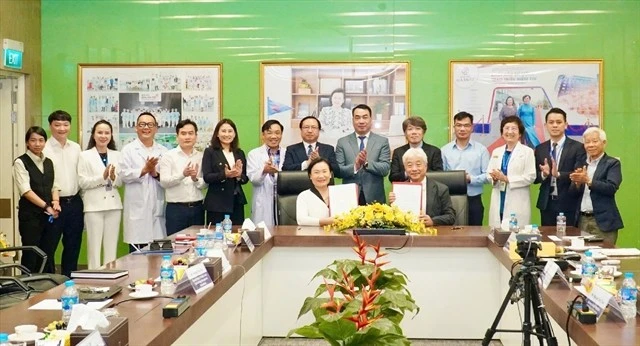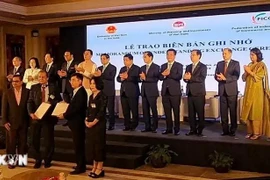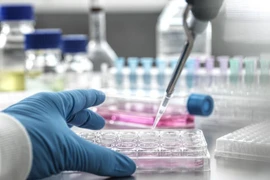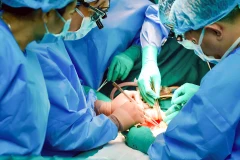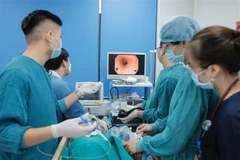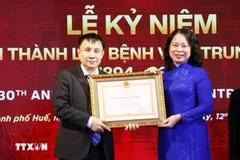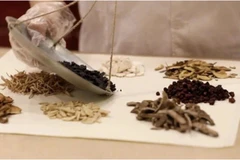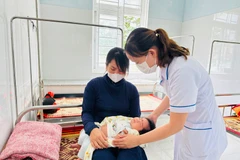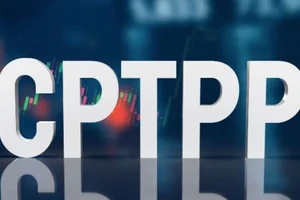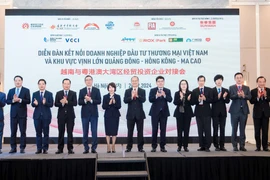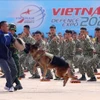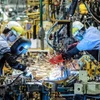HCM City (VNS/VNA) - A Memorandum of Understanding (MOU) has been signed between Hoa Lam Shangri-La Healthcare of Hoa Lam Group and Japan-based Cyto-Facto Inc to collaborate in establishing a quality control centre for cells and stem cells in Vietnam that meets international standards.
Under the MOU, the two sides will partner to develop cell therapy, stem cells, and gene therapy.
Cyto-Facto Inc will provide training, consultation, and technology transfer in cell and stem cell production (including mesenchymal stem-cell production from knee synovial membrane) according to Japanese quality control standards.
It will provide consultative support in implementing automated cell and stem cell processing systems for Hoa Lam Shangri-La Healthcare.
It will also consult and help Hoa Lam Shangri-La Healthcare to establish a quality control centre for cells and stem cells, adhering to international quality standards.
Tran Thi Lam, founder and chairwoman of Hoa Lam Group, said this partnership is expected to promote the development of the group’s Hoa Lam Shangri-La High-Tech Medical Zone in Bình Tan district providing international standard medical services for people in Vietnam and other countries in Southeast Asia, especially in the fields of stem cells and regenerative medicine.
Stem cells are widely utilised in regenerative medicine and chronic disease treatment.
Vietnam’s healthcare sector has successfully implemented hematopoietic stem-cell transplants (bone marrow transplant) in treating blood cancer, used adipose-derived stem cells for knee osteoarthritis treatment, and applied stem cells for cardiovascular disease treatment and chronic obstructive pulmonary disease.
International collaboration in stem-cell research, development, and application, particularly with Japan renowned as the “cradle” of cellular technology with three Nobel Prizes in Biomedicine, will provide enhanced healthcare opportunities for millions of Vietnamese patients suffering from chronic and severe illnesses.
Cyto-Facto Inc, located in Kobe City of Japan, which is the first company separated from the Foundation for Biomedical Research and Innovation at Kobe (FBRI), is a core organisation within the Kobe Biomedical Innovation Cluster (KBIC), Japan's largest life sciences and biomedical cluster.
It has accumulated extensive manufacturing technology experience and has implemented production lines for stem cells and immune cells, including CAR-T cells (Chimeric Antigen Receptor T-cells), iPS cells (induced Pluripotent Stem cells), and MSC (Mesenchymal Stem Cells) at various developmental stages.
It is recognised as Asia’s first company to manufacture commercial CAR-T products under the Good Manufacturing Practices (GMP) standards of Pharmaceutical Inspection Cooperation Scheme (PIC/S)./.
